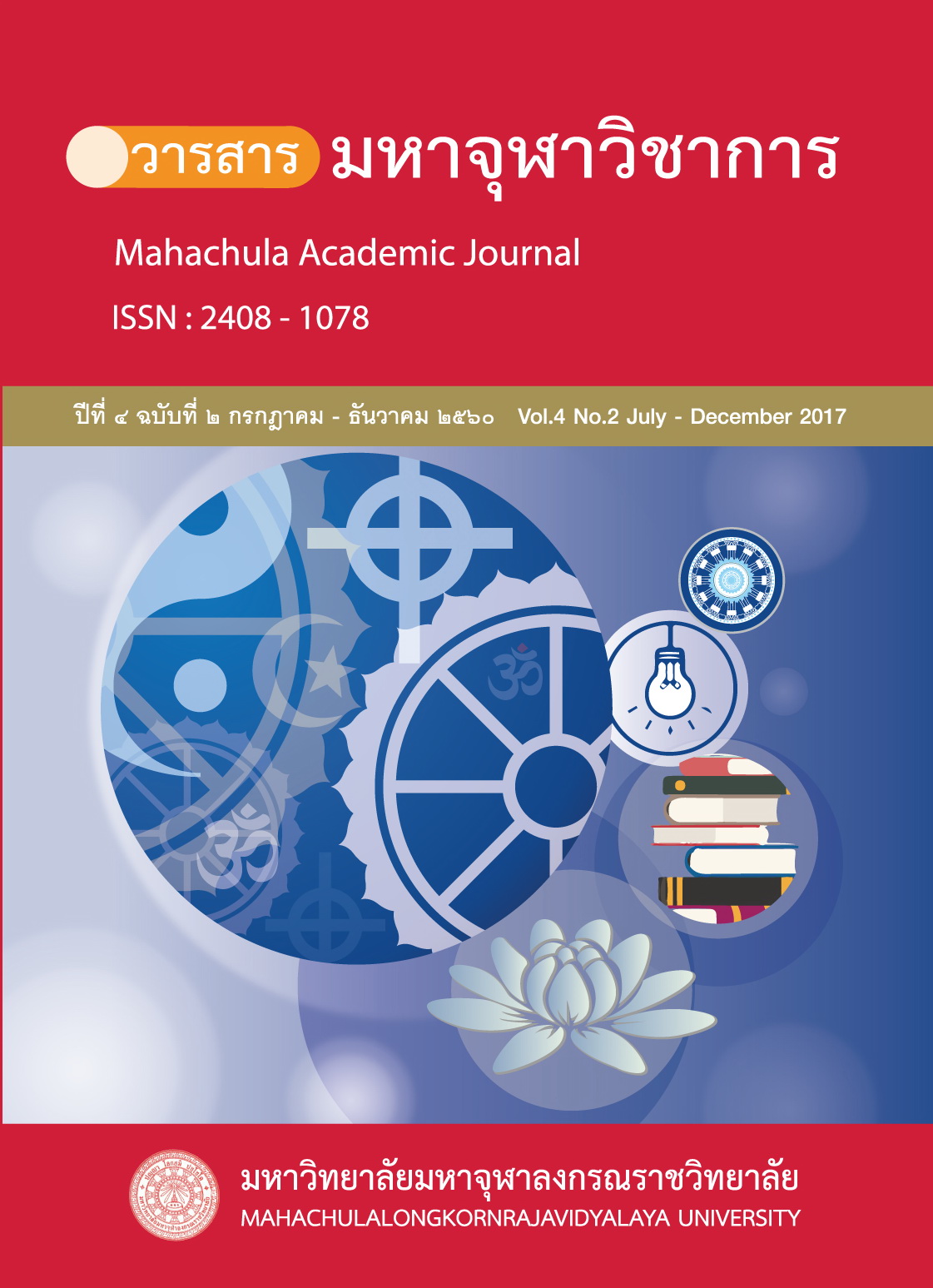Philosophy of Creating Peace in Buddhism
Main Article Content
Abstract
In terms of creating peace, philosophy is reasonably said to have the method to create peace that is the method of dialogue and morality. As for dialogue, it might be considered as the initial step for creating the peace. Anyway, morality is one of those factors for creating peace because it separately involves training process, especially how to train mind. Regarding Buddhism, there are certainly two kinds of peace; namely, external peace and inner peace. External peace is concerned with how to live one’s life with others in society peacefully. With this, five precepts which are well- known among the Buddhists as a moral law are practically used as a social regulation in which people in the society should comply with stringently. Thus, the process of creating the external peace in Buddhism relies on moral discipline that is five precepts. As for inner peace, it inevitably depends on getting mind trained. Since violence results from hatred mind, Buddhism turns to utilize the discipline of patience (Khanti) so as to prevent the undesirable situation that causes violence. Apart from patience, it is the discipline of Loving-kindness (Metta) so as to suppress harsh emotion and calm mental activities. According, discipline of patience and Loving-kindness are said to be the disciplines of getting mind trained.
Article Details
References
Barahona, Humberto. Right Human Relations and World Peace. Journal of MCU Peace studies, Vol.4 No.1. (2016), pp. 288-294.
Buddhaghosa, Bhadantācariya. The Path of Purification (Visuddhimagga). Bhikkhu Ñāṇamoli. (translate). Kandy: Buddhist Publication Society, 1991.
Gorkom, Nina van. Abhidhamma in Daily Life. London: Zolag, 2009.
Gyeltshen, K. and Sripokangkul, S. Bhutan’s Unique Transition to Democracy and its Challenges. Journal of MCU Peace studies, Vol. 5 No.1(2017), pp. 281-296.
P.A. Payutto. Good, Evil, and Beyond Kamma in Buddha’s Teaching. Bruce Evans. (translate). Bangkok: Buddha Dharma Education Association, 1992.
Phramahāsamaṇachao Kromphrayā vajirañāṇavarorasa, Somdet. Nvakovāda: Instructions for Newly-Ordained Bikkhus and Sāmaṇeras. Bangkok: Mahāmakuṭrājavidyālaya, 1971.
Upatissa, Arahant. The Path of Freedom (Vimuttimagga). Rev. N. R. M. Ehara Soma Thera, Kheminda Thera. (translate). Columbo: Balcombe House, 1961.


